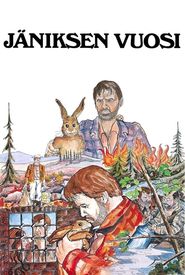Risto Jarva, a prominent figure in the Finnish New Wave cinema, alongside Mikko Niskanen, Jaakko Pakkasvirta, and Erkko Kivikoski, was introduced to the world of filmmaking by a local pastor, who gifted him a cine-camera, igniting his passion for the art.
As a young adult, Jarva pursued his interest in photography and began studying chemistry at the Helsinki Polytecnic, simultaneously creating his first short films. In the early 1960s, he co-founded Filminor Productions with Jaakko Pakkasvirta, and their inaugural film, Yö vai päivä (1962),a comedy exploring Finnish traditions, was intended for international distribution, although it ultimately failed to gain traction.
Jarva's subsequent film, Onnenpeli (1965),was another comedy, but his work soon shifted towards tackling social issues. Movies like Työmiehen päiväkirja (1967),Ruusujen aika (1969),Bensaa suonissa (1970),and Kun taivas putoaa...(1972) addressed topics such as working-class struggles, traffic culture, politics, private enterprise, and Finland's future conditions.
Following his social commentary films, Jarva returned to comedy, driven by the financial struggles of Filminor, which believed that comedies would improve their situation. This proved true, as Mies, joka ei osannut sanoa EI (1975) and Loma (1976) became massive successes. Jarva's subsequent film, Jäniksen vuosi (1977),blended comedy and social issues, earning critical acclaim and commercial success, with many regarding it as Jarva's most important work.
Tragically, Jarva's life was cut short in a car accident while returning home from the VIP screening of Jäniksen vuosi (1977).
















